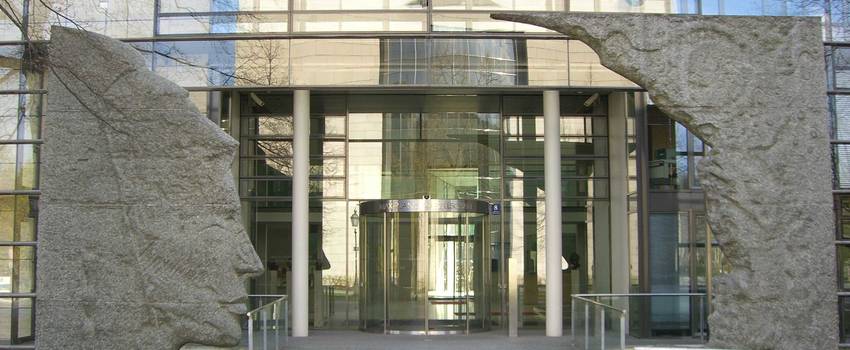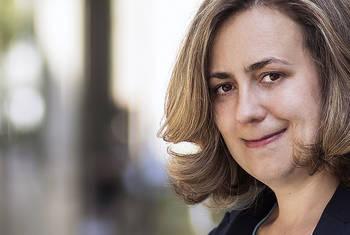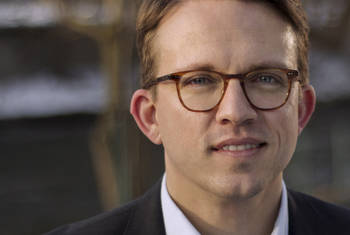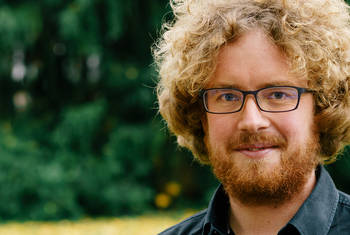Carolin Görzig How Do Terrorist Groups Learn and Unlearn Violence?
Carolin Görzig leads the research group “How Terrorists Learn” at the Max Planck Institute for Social Anthropology. She has previously held positions at Johns Hopkins University and at the EU Institute for Security Studies. Her research focuses on terrorism and international relations in Latin America and the Middle East. Regularly sought out for her expertise by media organizations like Radio France International and Turkish Newsweek, Carolin Görzig is a reviewer for journals including Terrorism and Peace and Security and Political Violence.
Area of Research
Terrorism Research, Radicalisation and De-radicalisation, Negotiations with Terrorist Groups, Cyber-Terrorism, Peace and Conflict Research, International Security, International Relations
since 2015
Max Planck Research Group Leader
Max Planck Institute for Social Anthropology
Research Group: “How Terrorists Learn”
2013-2015
Assistant Professor
Virginia Commonwealth University (VCU)
L. Douglas Wilder School of Government and Public Affairs
2011-2012
Visiting Research Scholar
Johns Hopkins University
Conflict Management Program
2009-2011
Transatlantic Post-Doc Fellowship for International Relations and Security
EU Institute for Security Studies
2008-2009
Marie Curie Pre-Doc Fellow
Uppsala University
Department of Peace and Conflict Research (DPCR)
2008-2008
Research Fellow
International Institute of Applied Systems Analysis (IIASA)
Field Research in Syria
2005-2006
Visiting Researcher
London School of Economics and Political Science
Field Research in Egypt, Turkey and Colombia
2004-2009
Doctorate in Philosophy
Ludwig Maximilian University Munich (Ludwig-Maximilians-Universität München)
2003-2004
Master in International Conflict Analysis
Brussels School of International Studies
1999-2002
Bachelor in International Relations
Dresden University of Technology (Technische Universität Dresden)
- Security and Peace
- International Journal of Conflict and Violence
- Marmara Journal of European Studies
- Virginia Social Science Journal
- Terrorism and Political Violence
- Peacebuilding
 © Maximilian Dörrbecker
© Maximilian Dörrbecker
Max Planck Society
"The Max Planck Society is Germany's most successful research organization. Since its establishment in 1948, no fewer than 18 Nobel laureates have emerged from the ranks of its scientists, putting it on a par with the best and most prestigious research institutions worldwide. The more than 15,000 publications each year in internationally renowned scientific journals are proof of the outstanding research work conducted at Max Planck Institutes – and many of those articles are among the most-cited publications in the relevant field." (Source)
Institute
Max Planck Institute for Social Anthropology
"The Max Planck Institute for Social Anthropology is one of the world’s leading centres for research in socio-cultural anthropology. It was established in 1999 by Chris Hann and Günther Schlee, and moved to its permanent buildings on Advokatenweg 36 in Halle/Saale in 2001. Marie-Claire Foblets joined the Institute as its third Director in 2012. Common to all research projects at the Max Planck Institute is the comparative analysis of social change; it is primarily in this domain that its researchers contribute to anthropological theory, though many programmes also have applied significance and political topicality. Fieldwork is an essential part of almost all projects. More than 175 researchers work at the Institute, the great majority in one of its three Departments: ‘Law & Anthropology’ (Foblets); ‘Resilience and Transformation in Eurasia’ (Hann); ‘Integration and Conflict’ (Schlee). The Institute’s Library, the Research Coordination Unit, the IT Department and administrative staff assist the researchers in their work. The Institute has its own Guesthouse, and organises regular seminars and international conferences. It cooperates closely with anthropologists and other colleagues at the Martin Luther University, Halle-Wittenberg, and at the University of Leipzig" (Source)
Map
It is very difficult to learn something new if you haven’t unlearned what you have done before. In this video, CAROLIN GÖRZIG shows how we can better understand and influence the processes by which terrorist groups learn and unlearn violence. Drawing on insights provided by the deradicalization of organizations like the Provisional IRA (Irish Republican Army), and with fieldwork ongoing in territories including Kyrgyzstan and Syria, Görzig argues that particular combinations of pressure, recognition and communication can provide the external impetus for a terrorist group’s unlearning of violence. Seeking to build interdisciplinary links with psychology, sociology and communication science, Görzig’s project is also looking to expand its focus to further topics including right-wing extremism.
LT Video Publication DOI: https://doi.org/10.21036/LTPUB10624
Influencing Negotiation Willingness in the Middle East: The Potential Contributions of Private Actors
- Claudia Hofmann and Carolin Goerzig
- Negotiation Journal
- Published in 2016









